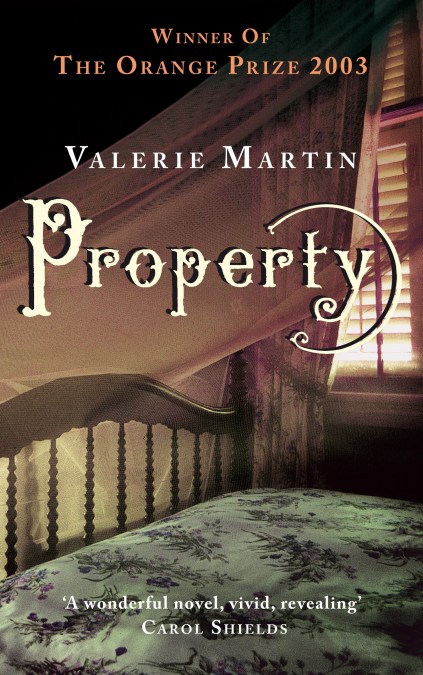WINNER OF THE WOMEN’S PRIZE FOR FICTION 2003
Manon Gaudet is unhappily married to the owner of a Louisiana sugar plantation. She misses her family and longs for the vibrant lifestyle of her native New Orleans, but most of all, she longs to be free of the suffocating domestic situation. The tension revolves around Sarah, a slave girl who may have been given to Manon as a wedding present from her aunt, whose young son Walter is living proof of where Manon’s husband’s inclinations lie.
This private drama is being played out against a brooding atmosphere of slave unrest and bloody uprisings. And if the attacks reach Manon’s house, no one can be sure which way Sarah will turn . . .
Beautifully written, PROPERTY is an intricately told tale of both individual stories and of a country in a time of change, where ownership is at once everything and nothing, and where belonging, by contrast, is all.
Manon Gaudet is unhappily married to the owner of a Louisiana sugar plantation. She misses her family and longs for the vibrant lifestyle of her native New Orleans, but most of all, she longs to be free of the suffocating domestic situation. The tension revolves around Sarah, a slave girl who may have been given to Manon as a wedding present from her aunt, whose young son Walter is living proof of where Manon’s husband’s inclinations lie.
This private drama is being played out against a brooding atmosphere of slave unrest and bloody uprisings. And if the attacks reach Manon’s house, no one can be sure which way Sarah will turn . . .
Beautifully written, PROPERTY is an intricately told tale of both individual stories and of a country in a time of change, where ownership is at once everything and nothing, and where belonging, by contrast, is all.
Reviews
A wonderful novel, vivid, revealing
This fresh, unsentimental look at what slaveowning does to (and for) one's interior life must be a first. And the writing - so prised and clean-limbed - is a marvel.
Reminiscent of Doris Lessing's novel, THE GRASS IS SINGING...Martin's project was not to impose a contemporary sensibility on slavery, but to investigate what the daily fact of its brutality might do to one's interior life
She creates a heroine as intriguing as she is repellent. And she forces the reader into the complicity and discomfort of a voyeur

